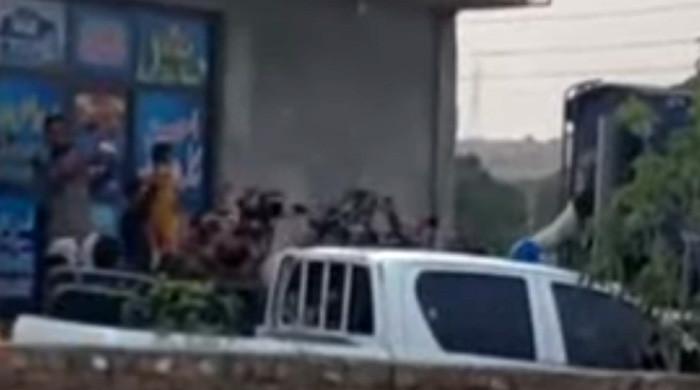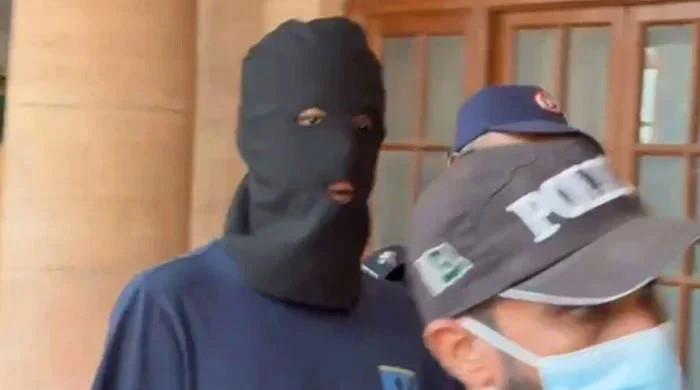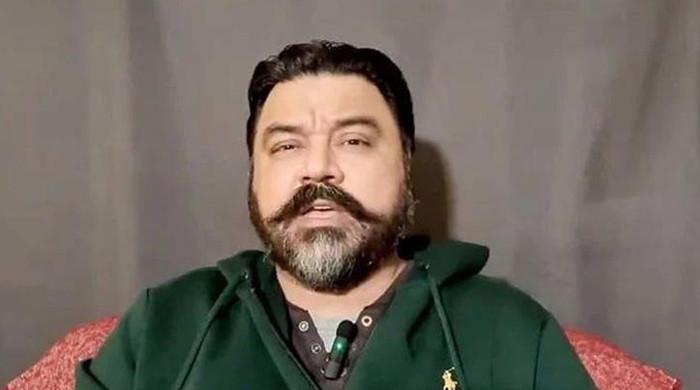Pakistani girl travels from Karachi to Chennai to get a new heart
Ayesha Rashid received a donor heart of 69-year-old brain-dead Indian patient from Delhi
April 27, 2024
- Ayesha Rashid was diagnosed with dilated cardiomyopathy.
- Doctor says girl is completely recovered and ready to go home.
- Pakistani patient receives heart of 69-year-old brain-dead Indian.
ISLAMABAD: A Pakistani teenager travelled all the way from Karachi to India's Chennai to get a heart transplant and is currently under observation at MGM Healthcare, The News reported Saturday.
Ayesha Rashid, 19, was diagnosed with dilated cardiomyopathy — a condition in which the left ventricle, the heart's main pumping chamber, is enlarged — when she was just 14 years old.
According to Indian media reports, a team led by Dr KR Balakrishnan had first implanted a Left Ventricle Assist Device (LVAD) in Ayesha's heart, however, it malfunctioned and lead to an infection.
The team then performed a successful heart transplant using a donor heart of a 69-year-old brain-dead Indian patient which was transported from Delhi to Chennai.
This heartwarming story shows how borders can be eased for medical care and giving a new life to people. However, it also highlights the challenges faced by heart transplant facilities in Pakistan.
Dr Balakrishnan, while speaking to ANI, said: "In that country (Pakistan), managing patients with artificial heart pumps is not easy because the equipment required to monitor is not there. And they had no money. Half the time she (Ayesha) was not conscious, she had bad infection. We had to do something to help.
"With great difficulty, she got the visa and she came here with little money. We had to take care of all the expenses. [...] Eventually, we got a heart donor from Delhi which no one wanted and she underwent a heart transplant a couple months ago. That heart was quiet big for her because it was from a much older donor and her chest had to be kept open for almost 10 days," the doctor continued.
Dr Balakrishnan said that Ayesha is now completely recovered and ready to go home. He added that she has to be on lifelong treatment of immunosuppression.
Ayesha not only Pakistan to receive transplant in India
Ayesha is not the first Pakistan to undergo a heart transplant in India as a 46-year-old man also received a transplant in 2014. “Doctors managed my condition with medication, but they told me a transplant was the only cure,” Amir told The News.
“Through online research, I discovered a heart transplant centre in Chennai, India, where I received a new heart from an anonymous Indian donor in 2014.”
The first Pakistani to travel to Chennai for a heart transplant was Qari Zubair, who was an imam from Gujrat. Sadly, he developed complications and did not survive.
“According to my knowledge, around six Pakistanis have undergone heart transplants in India,” Amir said, preferring to keep personal details private.
“I’m the longest survivor. Four others passed away after their transplants. So, why do Pakistanis need to travel all the way to India for heart transplants? Several transplant and cardiac surgeons cite a lack of expertise, high costs, limited post-operative care, and a shortage of deceased donors as the primary reasons for the absence of a heart transplant programme in Pakistan."
Lack of donors, expertise in Pakistan
Renowned liver transplant surgeon Dr Faisal Saud Dar said that the two main reasons Pakistan doesn't perform heart transplants is the lack of deceased donors and a lack of expertise.
Dr Dar also emphasised the importance of raising awareness about organ donation after death as a way to save lives.
Meanwhile, renowned cardiac surgeon Dr Pervaiz Chaudhry believes that Pakistan will soon be able to provide this medical facility. He says that he has the expertise and plans to initiate such a programme.
“I’ve performed over 71 heart transplants and several lung transplants,” Dr Chaudhry said.
“I recently completed refresher training on heart transplants in the United States. I started a programme at the National Institute of Cardiovascular Diseases (NICVD) in Karachi to implant LVADs in heart failure patients, which could lead to heart transplants, but the programme couldn’t materialise due to unforeseen circumstances.”
Dr Chaudhry also said that he has applied to the Human Organ Transplant Authority (HOTA), seeking permission to conduct heart and lung transplants at Umer Hospital in Lahore.
He urges the authorities to define “brain death” in Pakistan, facilitating requests for organ donation from deceased individuals.
Meanwhile, Amir told The News: "Authorities from the Pakistan Institute of Medical Sciences (PIMS) in Islamabad and the Armed Forces Institute of Cardiology (AFIC) announced plans to perform heart transplants to save countless lives in 2011."
“While I understand heart transplants are complex and expensive, traveling to India for such procedures is a huge burden. I wish we had our own centres offering transplants at free or affordable rates to save more lives.”











